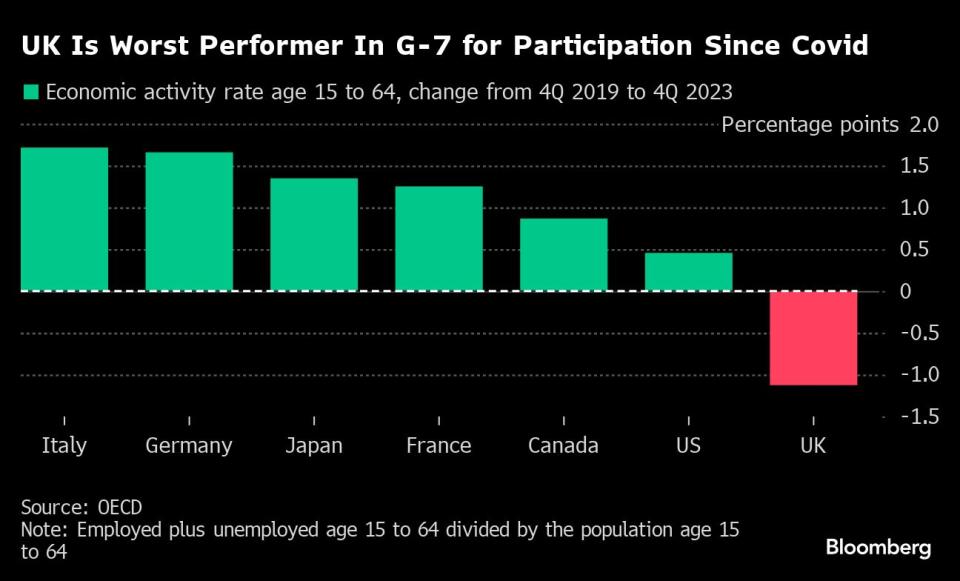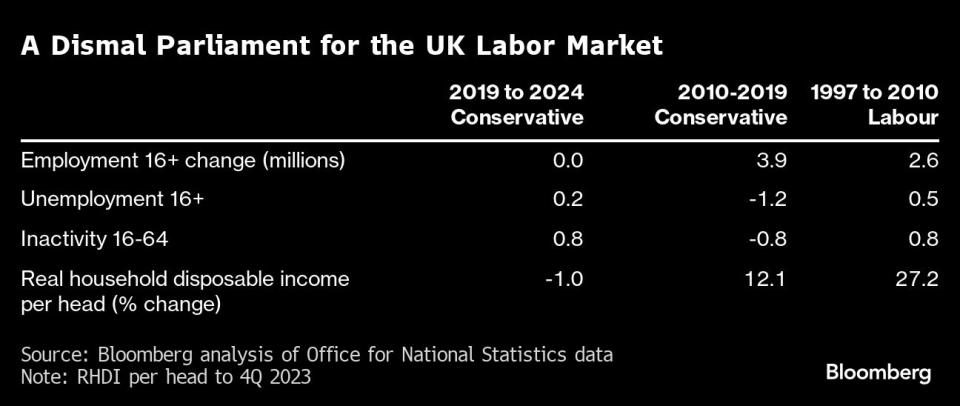Britain’s Workforce Stagnated Under Conservatives Since 2019
(Bloomberg) -- Prime Minister Rishi Sunak is fighting for his political survival after a bleak four years for the UK labor market.
Most Read from Bloomberg
Dozens of CVS Generic Drug Recalls Expose Link to Tainted Factories
Fed’s Higher-for-Longer Stance Hits Firms That Expected Rate Cut
Figures on employment and participation published Tuesday were the last before the July 4 general election. They made difficult reading for Sunak and his Conservative Party, which appears to be heading for defeat to the Labour opposition.
Sunak insists the economy has turned a corner, with Britain out of recession and living standards rising again. However, it comes after what Tony Wilson, director at the Institute for Employment Studies, described as a “dismal” period for employment since Boris Johnson led the Tories to victory at the last election in 2019.
An analysis of the latest data shows there are no more people in work than in 2019, and almost a million have dropped out of the workforce — a contrast with other major economies where participation rates are back above pre-pandemic levels.
Long-term sickness accounts for much of the increase in inactivity, fueling labor shortages that have kept inflation and interest rates elevated. Adjusted for inflation, household incomes are still on track to fall over the current parliament despite recent personal tax cuts.
“We need to address this urgently, because when employment stops growing the economy stops growing too,” Wilson said. “Reforming employment support needs to be a top priority for the next parliament, so that more people can get access to the help that they need to get back into work and get on in work.”
Most Read from Bloomberg Businessweek
China’s Economic Powerhouse Is Feeling the Brunt of Its Slowdown
As Banking Moves Online, Branch Design Takes Cues From Starbucks
Food Companies Hope You Won’t Notice Shortages Are Raising Prices
©2024 Bloomberg L.P.

 Yahoo News
Yahoo News 


